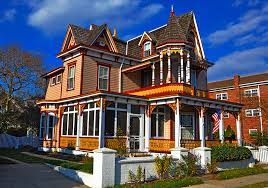Perhaps you wish to renovate your kitchen or basement. Maybe you want to combine your debts or pay your child’s college tuition. A second mortgage might assist you in covering these types of costs. You may be able to obtain a second mortgage and meet your financial requirements if you have equity in your home. Before you take out a second mortgage, it’s a good idea to understand how it works and whether it’s right for you. Here is an overview of a second mortgage, the requirements, rates, and how it differs from refinancing.
What Is a Second Mortgage?
A second mortgage is a loan that, like the first mortgage, uses your home as security. The loan is referred to as a second mortgage because your purchase loan is usually the first loan to be repaid if your home goes into default.
This means that if you are unable to pay your mortgage and the lender decides to sell your home, your first mortgage will be paid first. After the first mortgage is paid off, any residual funds would be transferred to your second mortgage.
How Does a Second Mortgage Work
Second mortgages draw on your house’s equity, which is the market worth of your home less any loan obligations. Equity can rise or fall, but it should ideally rise over time. Equity can shift in a number of ways:
- When you make monthly loan payments, you reduce your loan balance, which increases your equity.
- Your equity grows if your home increases in value due to a strong real estate market or renovations you make to your home.
- When your home loses value or you borrow against it, you lose equity.
There are numerous forms of second mortgages:
- A lump amount: A normal second mortgage is a one-time home equity loan that provides you with a lump sum of money that you can utilize any way you see fit. You will return the debt gradually over time, often with fixed monthly installments, with this form of a loan. In a process known as amortization, you pay a portion of your interest expenses and a piece of your loan total with each payment.
- A line of credit: You can also borrow using a line of credit, which is a pool of money from which you can draw. You are never obligated to take any money with this form of loan, but you have the option to do so if you so desire. Your lender establishes a maximum borrowing limit, and you can borrow (many times) until you hit that limit. You can repay and borrow like you would with a credit card.
Depending on the type of loan and your preferences, your loan may have a fixed interest rate that allows you to plan your payments for years to come. Variable-rate loans are also available and are usual for credit lines.
Types of Second Mortgages
You can pick between two types of second mortgages: a home equity loan and a home equity line of credit (HELOC).
#1. Home Equity Line of Credit
You can take a lump-sum payment from your equity with a home equity loan. When you take up a home equity loan, your second mortgage provider pays you cash for a percentage of your equity.
The lender receives a second lien on your property in exchange. Just like your initial mortgage, you repay the loan in monthly installments with interest. The majority of home equity loan durations run from 5 to 30 years, which means you pay them back during that time period.
#2 Home Equity Lines of Credit
Home equity lines of credit, or HELOCs, do not provide you with a single lump sum of money. They function more like credit cards. The amount of equity you have in your home determines whether your lender will accept you for a line of credit. Then you might borrow against the credit extended to you by the lender.
You may be given special checks or a credit card to make purchases. HELOCs, like credit cards, have revolving debt. This feature allows you to utilize the money on your credit line as many times as you want, as long as you pay it back.
For instance, if your lender grants a $10,000 HELOC, you spend $5,000 and repay it. The $10,000 can then be used again in the future.
HELOCs are only valid for a set length of time known as a “draw period.” As with a credit card, you must make minimum monthly payments during your draw time.
When your draw term expires, you must refund the entire remaining balance on your loan. Your lender may require you to pay in a single lump sum or in installments over time. If you are unable to repay your loan by the conclusion of the repayment period, your lender may seize your home.
Second Mortgage Rates
Rates on second mortgages are typically higher than rates on first mortgages. This is because second mortgages are riskier for the lender, as the first mortgage gets paid off first in the event of a foreclosure.
Second mortgage rates, on the other hand, maybe more appealing than other options. If you’re thinking about acquiring a second mortgage to pay off credit card debt, for example, this can be a wise financial move because credit card rates are often higher than those offered by a home equity loan or HELOC.
The Benefits and Drawbacks of a Second Mortgage
Second mortgages, like any other sort of borrowing, have advantages and disadvantages.
The Benefits
#1. Second mortgages can result in large loan amounts.
Some lenders will let you borrow up to 90% of your home’s equity in a second mortgage. This means that a second mortgage allows you to borrow more money than other forms of loans, especially if you’ve been making payments on your loan for a long period.
#2. Credit cards have higher interest rates than a second mortgage.
Second mortgages are classified as secured debt, which means they have collateral backing them up (your home). They have lower interest rates than credit cards since the lender is less likely to lose money.
#3. There are no restrictions on how the funds can be used.
There are no regulations or guidelines that limit how you can spend the funds from second mortgages. The possibilities are endless, from wedding planning to paying off college debt.
The Drawbacks
#1. The interest rates on second mortgages are greater.
Second mortgages frequently have higher interest rates than refinances. This is because lenders are less interested in your home than your primary lender is.
#2. Second mortgages may place a strain on your finances.
You agree to make two monthly mortgage payments when you obtain a second mortgage: one to your original lender and one to your secondary lender. This duty can strain your family’s budget, especially if you’re already living paycheck to paycheck.
When Should I Apply for a Second Mortgage?
Second mortgages aren’t for everyone, but in the proper situation, they can make perfect sense. Here are some of the scenarios in which a second mortgage makes sense:
- You must pay off your credit card debt: Credit cards have higher interest rates than second mortgages. A second mortgage can help you combine your debt if you have many credit card balances spread across multiple accounts.
- You require assistance with revolving expenses: Do you require revolving credit yet do not wish to refinance? Unlike refinancing, HELOCs can provide you with revolving credit as long as you make your payments on time. If you need to handle a home maintenance bill or tuition on a regular basis, this alternative may be more doable.
- A cash-out refinance is not possible: Cash-out refinances typically have lower interest rates than home equity loans. If your lender declines your refinance request, you may still be eligible to obtain a second mortgage. Before you seek a second mortgage, examine all of your choices.
How to Apply for Second Mortgages
Compare prices from at least three separate sources. Include the following terms in your search:
- A neighborhood bank or credit union
- A loan originator or mortgage broker (ask your real estate agent for suggestions)
- An internet lender
Prepare for the process by gathering your paperwork. This will make the procedure far less difficult and stressful.
Second Mortgage Requirements
A few financial requirements must be met in order to qualify for a second mortgage. You must have a credit score of at least 620, a debt-to-income ratio of 43 percent, and a reasonable amount of equity on your first home. Because you will be using the equity in your home for the second mortgage, you must have enough to not only take out the second loan but also keep around 20% of the equity in your home in the first mortgage.
Should I acquire a second mortgage if my credit is bad?
Although second mortgages with bad credit are generally difficult to obtain, they are not impossible. Obtaining a second mortgage with a low credit score almost certainly means paying higher interest rates or relying on a co-signer.
You can also look into alternative financing options to assist with home improvements or debt restructuring. If you are unable to qualify for a second mortgage, both personal loans and cash-out refinances are viable possibilities.
Common applications for a second mortgages
Second mortgages are commonly used to pay for:
- College education costs
- Consolidation of high-interest debts like credit cards
- Home enhancements
- Medical expenses
Second mortgages are used by some borrowers to purchase an investment property. This is dangerous since a housing market slump could reduce the value of both houses.
Is it possible to use a refinance to pay off my second mortgage?
If you have enough equity in your home, you could use a cash-out refinance to pay off second mortgages. After you pay the secondary lender, you will have a single monthly payment again.
Remember that you must go through the refinance application and appraisal process with your lender. You must additionally pay origination and closing costs for your new loan. However, there’s a good possibility you’ll get a reduced interest rate, making this an appealing option for many borrowers.
What Is the Difference Between Second Mortgages and a Refinance?
A second mortgage is not the same as a mortgage refinance. When you obtain a second mortgage, you add a completely new mortgage payment to your monthly commitments.
You must pay off your original mortgage as well as the second lender. When you refinance, on the other hand, you pay off your original loan and replace it with new loan conditions from your original lender. Refinancing requires only one payment per month.
When you refinance mortgages, your lender is aware that there is already a lien on the property, which they can use as collateral if you do not pay the debt. Second mortgage lenders do not have the same assurance.
In the event of a foreclosure, your second lender is only reimbursed after the first lender is paid back. This means that if you fall significantly behind on your first loan payments, the second lender may receive nothing. You may have to pay a higher interest rate on a second mortgage than on a refinance since the second mortgage lender is taking on more risk.
As a result, many homeowners prefer a cash-out refinance to a second mortgage. Cash-out refinances provide a lender with a single lump sum of equity in return for a new, higher principal. Cash-out refinancing mortgage rates are almost always cheaper than second mortgage rates.
What Distinguishes a First and Second Mortgage?
First mortgages are secured by the property. Second mortgages use home equity to finance other ventures.
How Dangerous Is a Second Mortgage?
Lenders consider second mortgages riskier. Foreclosure sales pay to repay the first mortgage first. Sale profits may not cover the second mortgage. Real estate-secured second mortgages are cheaper than most other loans.
Why Do Individuals Have Second Mortgages?
You can borrow a lot of money with a second mortgage. Low-interest loans with tax benefits are common. Second mortgages might fund home improvements, college, or debt consolidation.
Are Second Mortgages Still Available from Banks?
If you don’t want to utilize the same bank, credit union, or online lender for your second mortgage, many lenders provide them.
Do Second Mortgages Cost Less?
Second mortgages are riskier, therefore lenders charge higher interest rates. Appraisal fees may apply.
Second Mortgages FAQs
What are the requirements for getting a second mortgage?
A credit score of at least 620 is usually required to get approved for a second mortgage, though specific lender requirements may be higher. Also, keep in mind that higher scores correlate with higher rates. You’ll also most likely require a debt-to-income ratio (DTI) of less than 43 percent.
What is the purpose of a second mortgage?
The most compelling reason to obtain a second mortgage is to use the funds to raise the value of your home. Using the proceeds from a second mortgage to increase the value of your home can help you keep your equity in the home.
Will a second mortgage affect my credit?
Yes. A completed first mortgage, mortgage refinance, or a second mortgage will temporarily lower your credit score. If you pay your mortgage on time, your credit score should improve within a year.
How long does it take to close on second mortgages?
Most borrowers can expect a mortgage to be closed in 20 to 30 days. The length of time it takes to close a mortgage is determined by where you are in the home buying or refinancing process. From application through final walkthrough and closing, the mortgage process typically takes between 30 and 60 days.
- Cash out refinance loan explained (+ requirements and tools)
- Mortgage Calculator Refinance Guide: Overview, Comparisons, & All you need
- REFINANCING LOANS: Definition & How it Works (Detailed Guide)
- Refinancing A Loan: What It Means & How It Works (Detailed Guide)
- Secondary Mortgage Market: Step By Step Guide On How It Works






